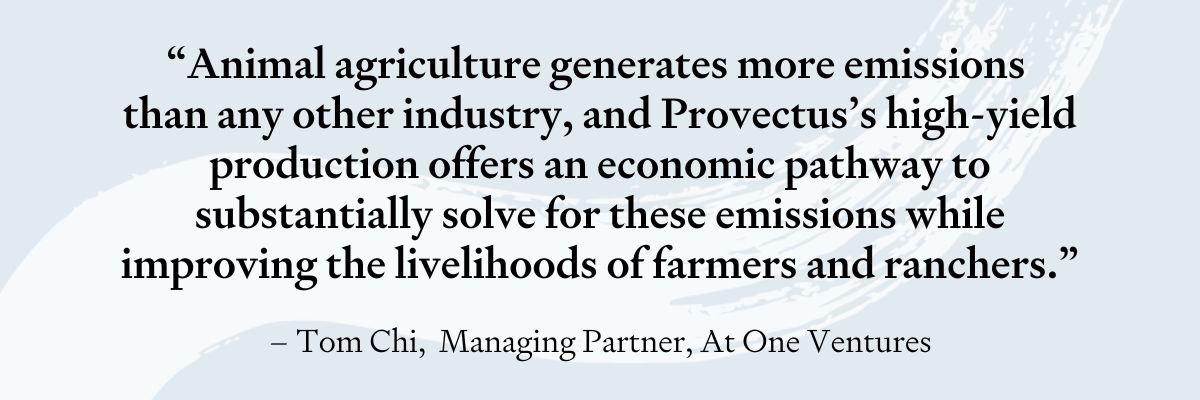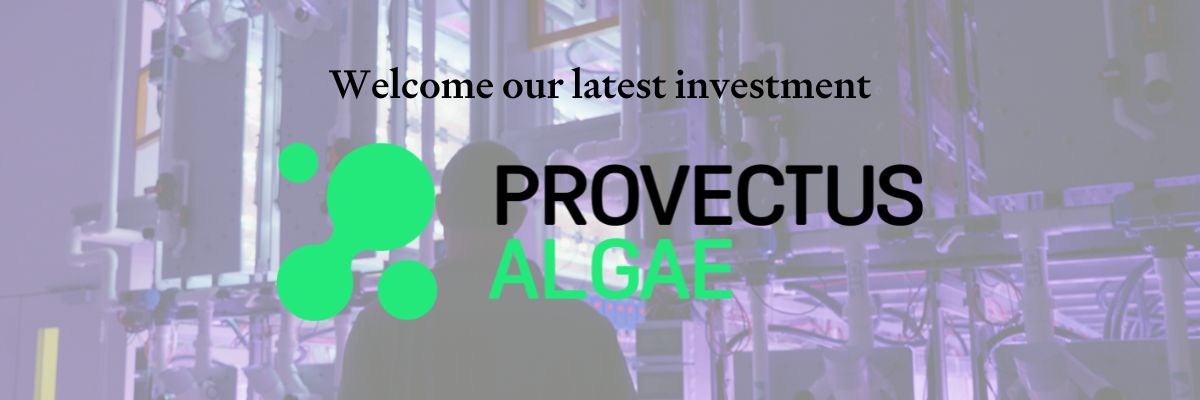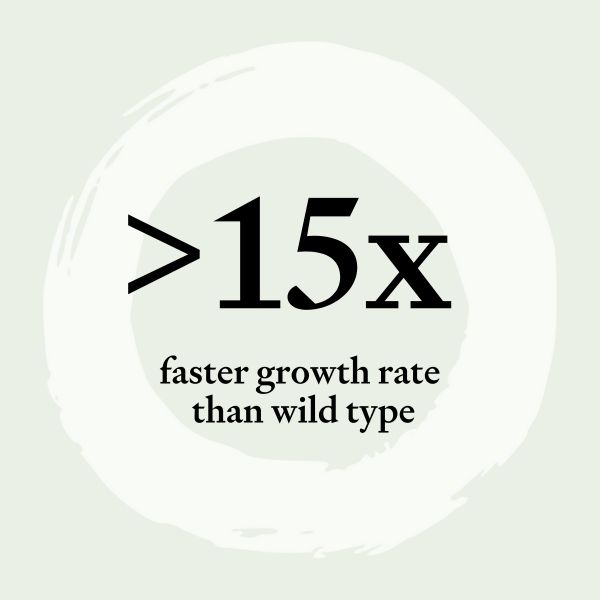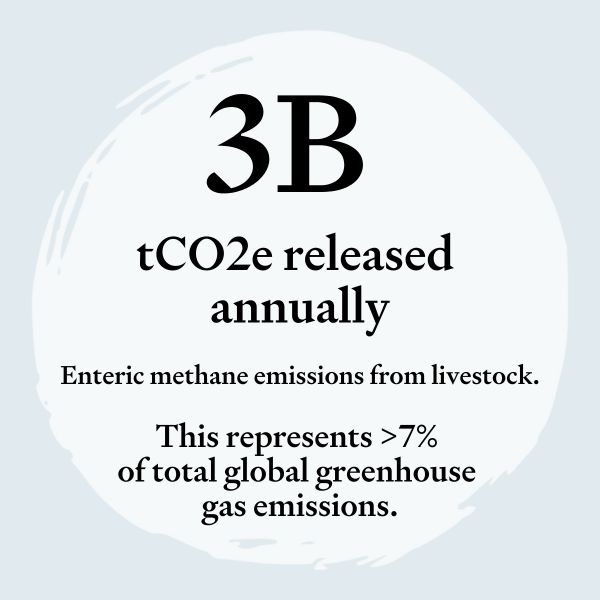Enteric methane emissions from livestock release more than 3B tCO2e annually, representing >7% of total global greenhouse gas emissions. This methane is primarily produced during digestion by ruminant animals such as cows, sheep, and goats, with cattle alone responsible for the vast majority. As methane has a global warming potential over 80 times greater than CO₂ over a 20 year period, these emissions significantly accelerate near-term climate change. Agriculture is the largest human-related source of methane globally, and enteric fermentation accounts for roughly 25-30% of all anthropogenic methane.
Not only is this an environmental problem, but it is also an economic one for the farmer—enteric methane is an energetic loss and lowering methane generation in the stomachs of these animals would allow that energy to be redirected towards animal productivity (i.e., milk production, weight gain, etc.), reducing inefficiencies in our food system.
Provectus Algae has developed a biomanufacturing platform based off its Precision Photosynthesis® technology that combines advanced omics, artificial intelligence, and automation to tailor the delivery of precise lighting conditions to algae to control and manipulate gene expression. This patented technology rapidly optimizes algae productivity and bioactive compounds to rates never before seen in the industry. The applications are endless and span across industries, but their first product is a red seaweed-based feed supplement for ruminants. The bioactive compounds in these algae are potent inhibitors of enteric methane production.
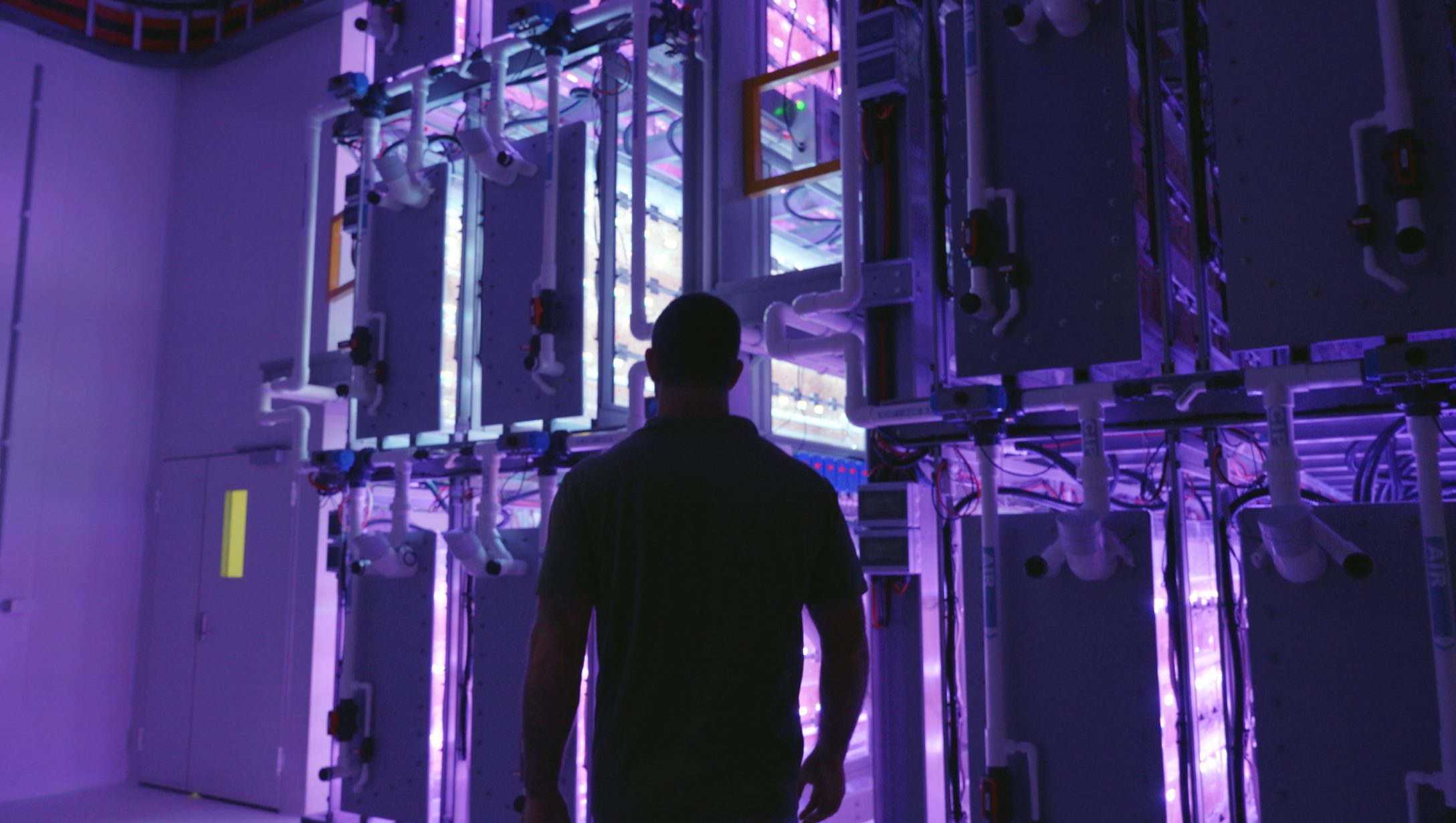
The technology is highly scalable. As opposed to traditional chassis, algae can be cultivated in process trains using less expensive materials like plastic and aluminum, and can be built by a large number of machine shops. Also, media costs are negligible, comprising mostly (salt)water and small amounts of nutrient input. A closed loop continuous process avoids environmental permitting requirements related to wastewater discharge that may delay commissioning. Low energy requirements for the process eliminate the need for interconnection upgrades onsite. Automation of bioprocessing dramatically reduces labor costs. Provectus’ modular production train can be easily deployed into existing warehouses, without much special requirement for the building, and are highly project financeable.
Enteric fermentation is energetically costly and reducing methane generation in the animals’ rumen can result in feed efficiency gains by redirecting that energy towards milk production and body weight gain (see figure below). Feed is the single largest cost item for operators and can comprise more than 50% of the total cost of production so improving feed efficiency even by single percentage points would be a big deal for profitability according to all farmers we interviewed. We’ve been actively searching for solutions in this space and most fall flat because the economics don’t pencil—that is, the cost of the feed supplement exceeds the increase in feed efficiency.
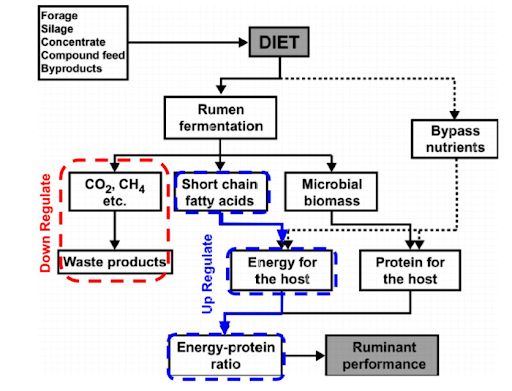
With their low CAPEX and OPEX requirements and high bio-productivity (>15x faster growth rate than wild type and >4x bioactives than industry standard, coupled with a stabilization process that recovers 100% of the bioactives through the final product), Provectus is able to deliver positive ROI to the farmer without the need for carbon credits or green premiums.
The company has demonstrated promising in vitro results, and is currently spending 2025 conducting in vivo trials across beef, dairy, and pastoral populations. Many of these are with some of the largest operators and suppliers in Australia and New Zealand.
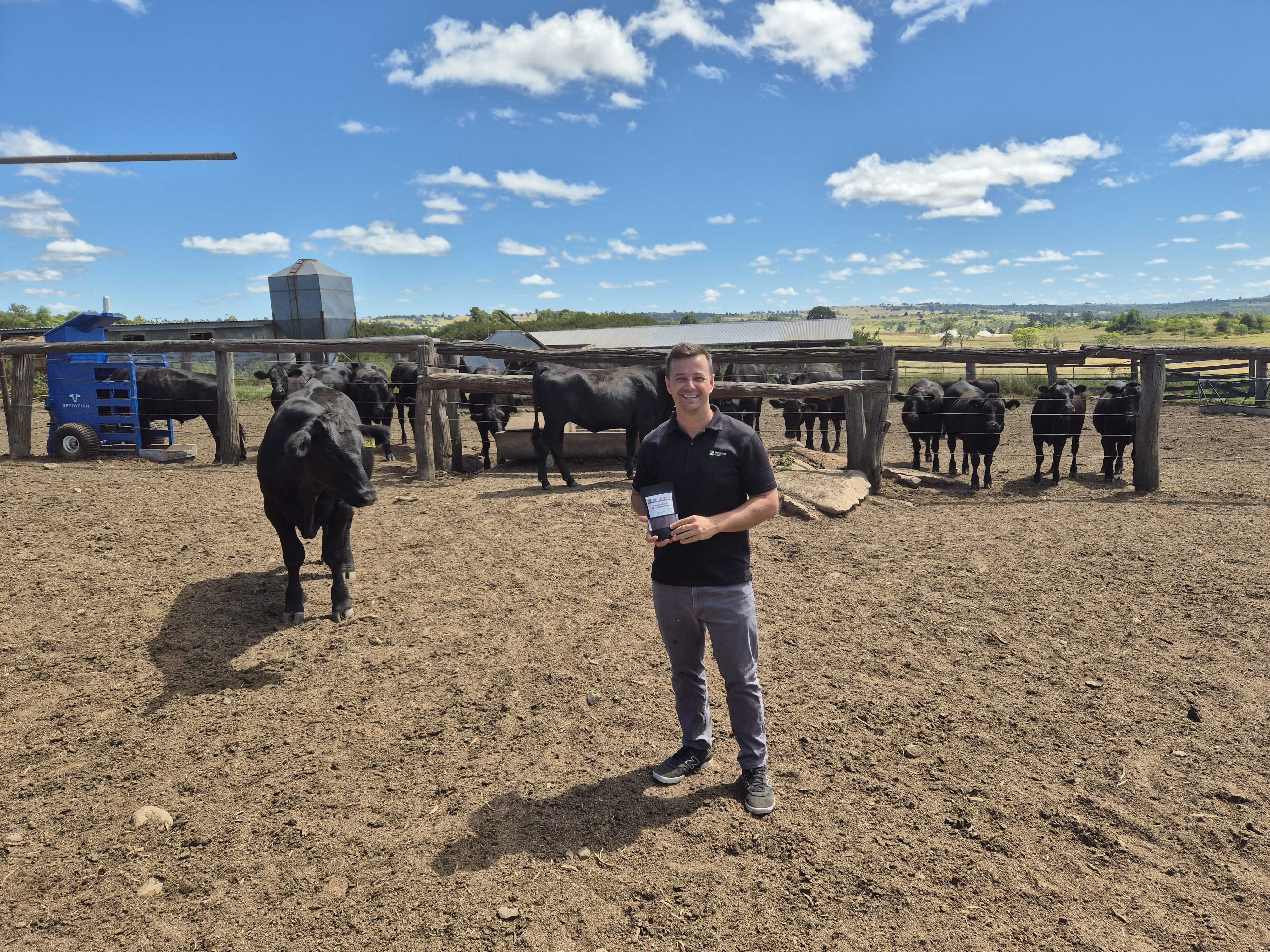
Apart from the feed supplement product, Provectus is also partnering with top agrochemical and consumer product companies for new product development and bioproduction opportunities across their portfolios.
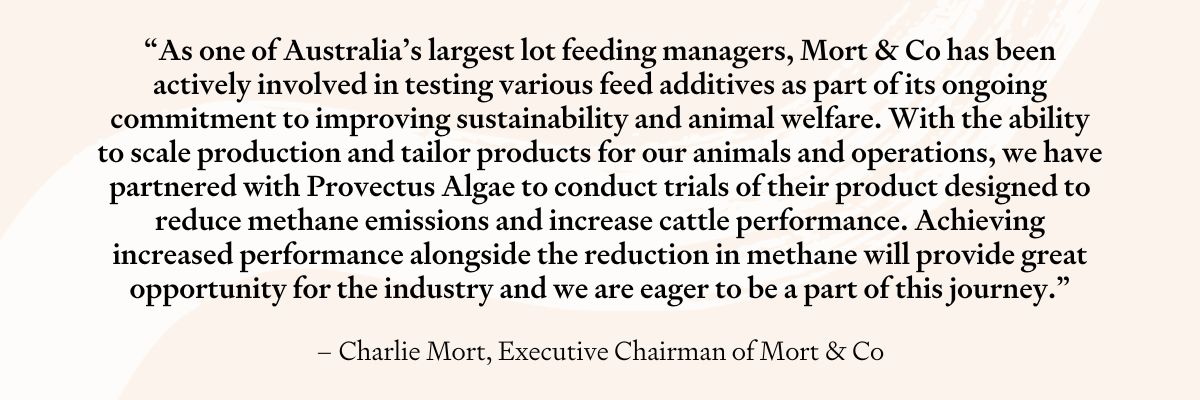
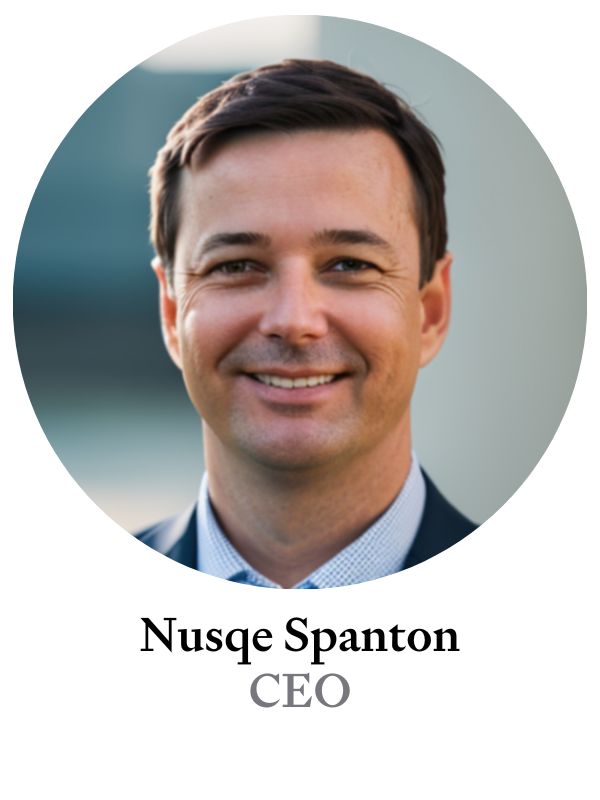
Nusqe Spanton (CEO) - Previously held founder and leadership roles in the aquaculture industry; track record of building and operating world’s largest pearl oyster and algae facilities. Trained in marine biotechnology.
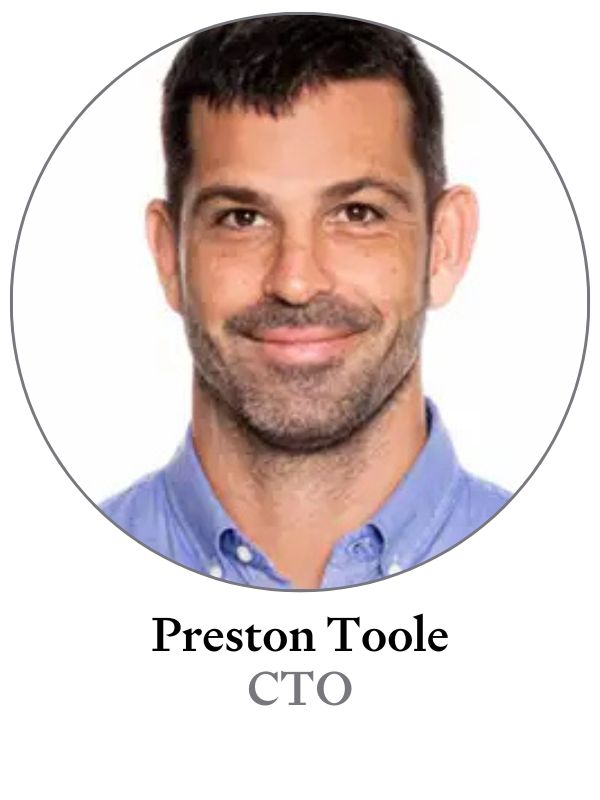
Preston Toole (CTO) - Experienced aquaculture technology professional; developed advanced machine learning and computer vision technologies and managed builds for several of the largest fully automated land-based fish farms in the world.
Watch the founders explain the technology:
